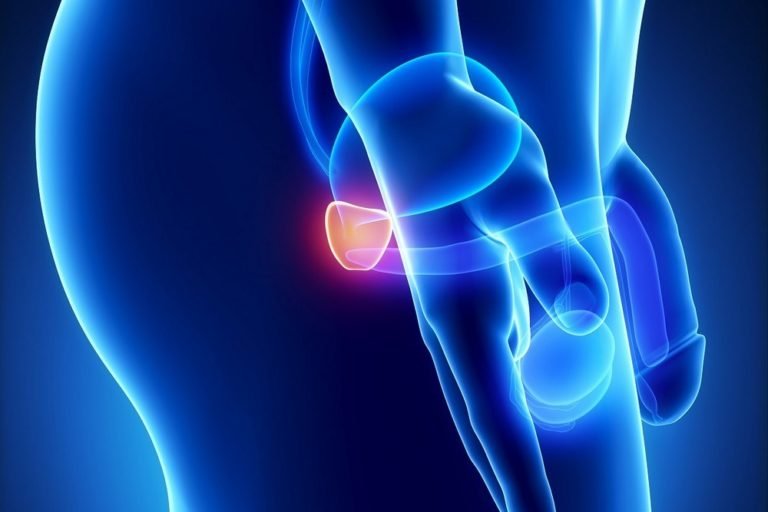Hormone therapy for prostate cancer
The male hormone is also called testosterone. In healthy people, this hormone helps stimulate prostate cells to grow. In the case of this gland cancer, testosterone also "helps" to enlarge the tumor. The goal of hormone therapy is to reduce stimulation of cancer cells by testosterone.

Testosterone is produced by the testes, in response to another hormone called LH-RH (gonadotropin). The LH-RH hormone produced in the brain follows the blood flow to the testes to stimulate the testes to produce and release testosterone. Hormone treatment reduces the amount of testosterone in the blood so that the tumor no longer "has food" so it does not get bigger. Testicular surgery is also a method to reduce male hormones, that is, to eradicate the body from which testosterone is produced.
Specifically, hormone treatment by using one or two drugs. One drug of choice was anti-LH-RH. This drug competes with the body's LH-RH, inhibiting the release of LH-RH from the brain. The other drug of choice has an anti-androgenic effect, that is, the male hormone that inhibits the effects of testosterone in the prostate gland.
Today, prostate cancer patients often prefer hormonal treatment over surgery because they find that castration of the testes is less aesthetic and unsafe. However, the efficacy and side effects of hormone therapy are about the same as castration. Both hormone treatments work to remove testosterone from the cancer.
Some prostate tumors that do not respond to hormone treatments include androgen-free and non -rogenic prostate cancers (male hormone). The main side effect of hormone treatments is breast enlargement and impotence.
The anti-LH-RH drugs include leuprolide (Lupron) or goserelin (Zoladex), which is injected every month at the health facility. Anti-androgen drugs including oral flutamide (Eulexin), bicalutamide (Casodex) are commonly used in combination with anti-LH drugs. LH-RH antagonists usually work independently. In some cases, the doctor may prescribe a combination of anti-androgen drugs if the cancer is still progressing despite treatment with anti-LH-RH. Hormone therapy may yield better results when combined with radiation therapy.
Research is underway to determine if hormone therapy will increase the effectiveness of radiation therapy. Usually hormone therapy applies to patients with advanced or metastatic prostate cancer. Some tumors are localized, but hormone therapy is indicated because the patient has severe medical conditions or they refuse other methods.
According to statistics, newly developed hormone therapy for less than 10% of patients with local prostate cancer. Note: This is a temporary measure to control cancer but not completely cured.
- Summary of foods that children should avoid if they do not want their children to precocious puberty
- Men with these 4 positions on the body the bigger the faster life expectancy decreases
- Gallbladder stones should eat, what to abstain, what to drink to get well soon?
- Gallstones: Causes, signs and complications
- Sun pain warning any dangerous diseases?
VACXIN VIETNAM JOINT STOCK COMPANY
Certificate of Business Registration No. 0107631488 by the Department of Planning and Investment City. Hanoi issued on 11/11/2016
Address: 180 Truong Chinh, Khuong Thuong Ward, Dong Da District, City. Hanoi
Mail: info@mode.edu.vn
Hotline: 028 7300 6595
Working time: From Monday to Sunday
From 7:30 - 17:00 (no lunch break)
117-119 Ly Chinh Thang, Ward 7, District 3, City. Ho Chi Minh